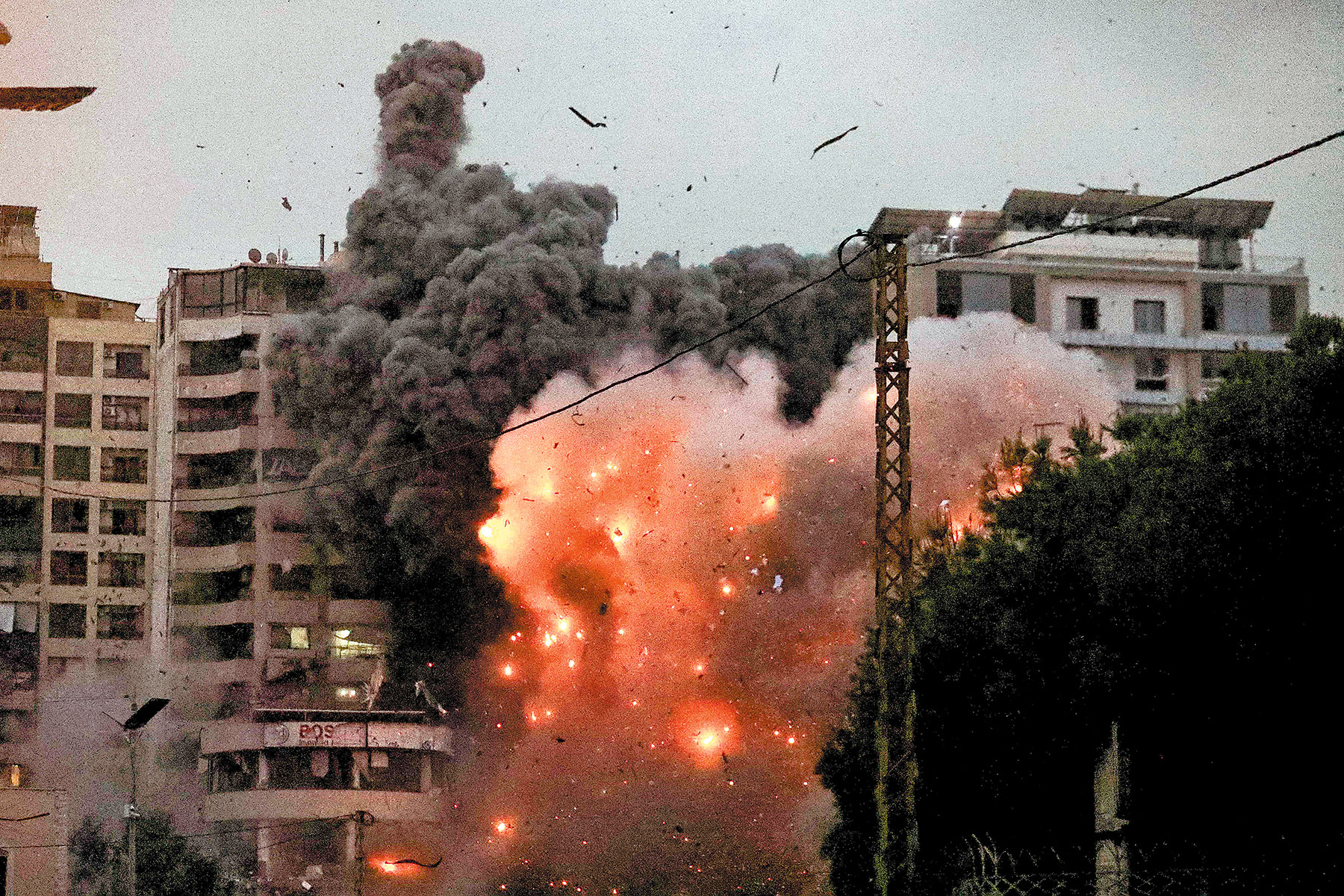World leaders and aid groups cautiously optimistic momentum can help bring peace to Gaza

Acease-fire between Israel and Lebanon-based group Hezbollah came into effect on Nov 27 after weeks of arduous negotiations, raising hopes that the temporary halt in fighting could pave the way for permanent peace.
The development, after more than a year of intense fighting in the Middle East, was widely welcomed by world leaders, officials, and aid groups but with guarded optimism.
International humanitarian organizations urged all parties to sustain the momentum in hopes of also reaching an end to the ongoing atrocities in Gaza.
In a joint statement by US President Joe Biden and French President Emmanuel Macron, they said Israel and Lebanon “have accepted a cessation of hostilities” and “will create the conditions to restore lasting calm”.
They said this would allow residents in both countries to return safely to their homes on both sides of the Blue Line separating Israel and Lebanon.
US envoy Amos Hochstein, who mediated the negotiations, told Al Jazeera in an exclusive interview that it “is a permanent cease-fire” and “not for 60 days” but emphasized there is “a lot to do in these 60 days”.
Hochstein said the Lebanese army would be redeployed back to the south, and Israeli forces would leave over the next several days until they all depart.
Lebanese caretaker Prime Minister Najib Mikati welcomed the development, according to a report by the L’Orient Today news platform.
Mikati said he saw it as an essential step toward restoring calm and stability in Lebanon, including the return of displaced persons.
Mikati also demanded Israel respect the cease-fire.
Israeli Prime Minister Benjamin Netanyahu said the length of the cease-fire would depend on what happens in Lebanon.
“We will enforce the agreement and respond forcefully to any violation. We will continue united until victory,” he said.
European Union Foreign Policy Chief Josep Borrell said it “is now crucial that the cease-fire holds” to guarantee the safety of both Lebanese and Israeli citizens.
In a post on X, Iran’s Foreign Ministry Spokesman Esmaeil Baqaei announced that Iran “welcomes the news about the end of aggression by the Zionist regime against Lebanon”.
Baqaei emphasized the international community’s responsibility to protect peace and stability in West Asia “and to exert effective pressure on the aggressor Zionist regime to cease the war against Gaza”.
In a statement, Stephane Dujarric, spokesperson for United Nations Secretary-General Antonio Guterres, said the UN chief welcomed the cease-fire announcement.
“The secretary-general urges the parties to fully respect and swiftly implement all of their commitments made under this agreement … to undertake immediate steps towards the full implementation of Security Council resolution 1701 (2006),” Dujarric added.
UNICEF Executive Director Catherine Russell called the cease-fire “an essential first step toward allowing communities to heal and rebuild after months of turmoil and loss”.
UN Security Council resolution 1701, adopted in the aftermath of the 2006 conflict between Israel and Hezbollah, calls for a cessation of hostilities as well as respect for the “Blue Line” of separation between Israeli and Lebanese armed forces.
Jan Egeland, secretary general of the Norwegian Refugee Council, called the cease-fire “long overdue”.
He said it is “now also far beyond time for the fighting in Gaza to cease too” and that the ceasefire in Lebanon “must not lead to any further escalation there or elsewhere”.
Abdul Wahed Jalal Nori, an analyst and lecturer at the Department of Fundamental and Inter-Disciplinary Studies at the International Islamic University Malaysia, said the cease-fire for Israel is “tactical, driven by immediate military or political considerations” rather than long-term peace aspirations.
“Militarily, for Israel, it is a strategic advantage, allowing it to concentrate military efforts exclusively on Gaza without fearing a northern front escalation. Let’s not hope for this,” said Abdul Wahed.
In the worst-case scenario, he said it would mark “a profound failure of the international community to prevent mass suffering and could lead to long-term instability, radicalization, and further erosion of trust in global governance structures”.
“As Israel stated that they are aiming to destroy Hamas totally, the complete destruction of Hamas as a governing entity could create a power vacuum in Gaza, leading to chaos and potential fragmentation of Palestinian representation,” said Abdul Wahed.
“This would weaken the Palestinian cause, leaving negotiations entirely at the mercy of Israeli terms,” he said, questioning how peace could be achieved.


